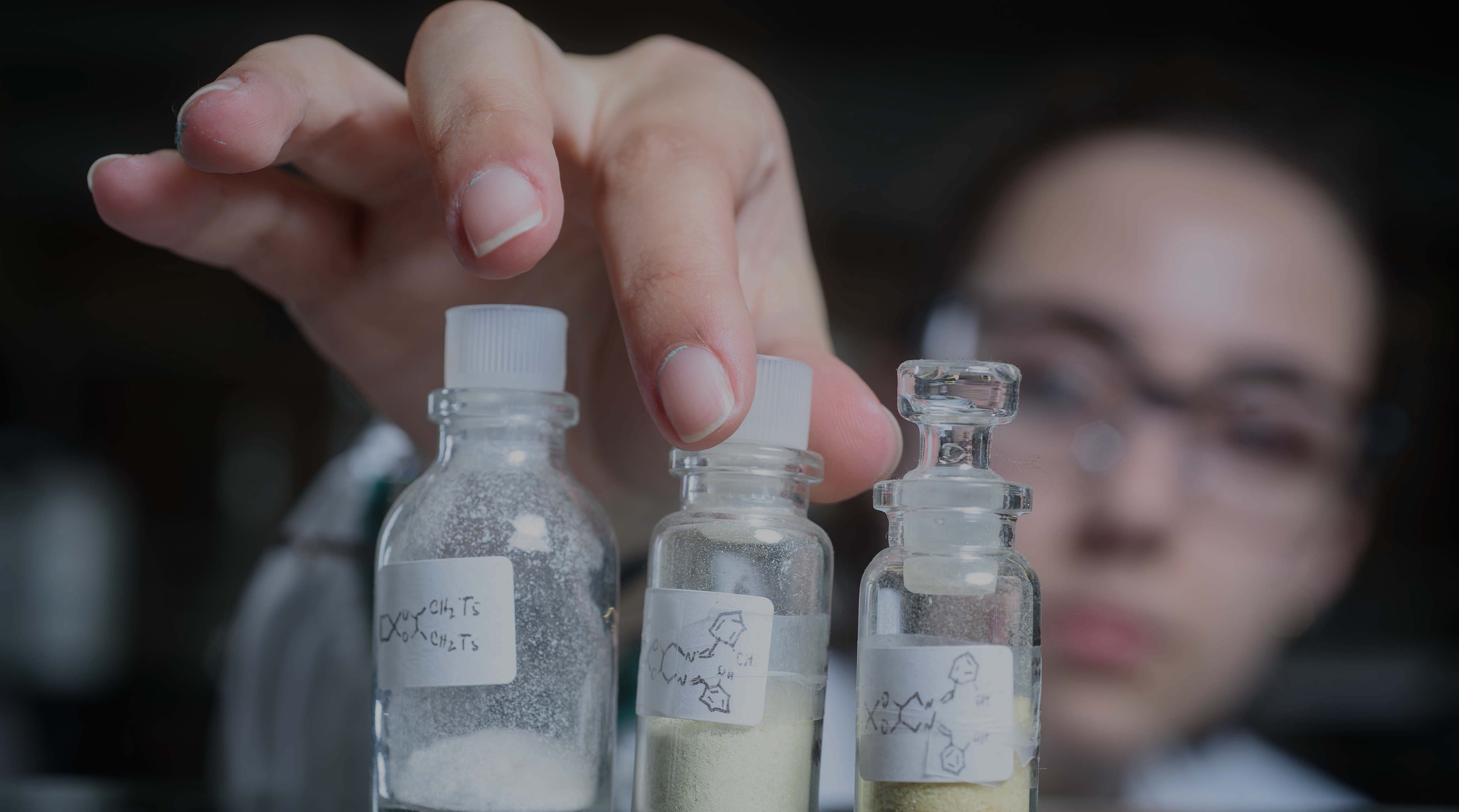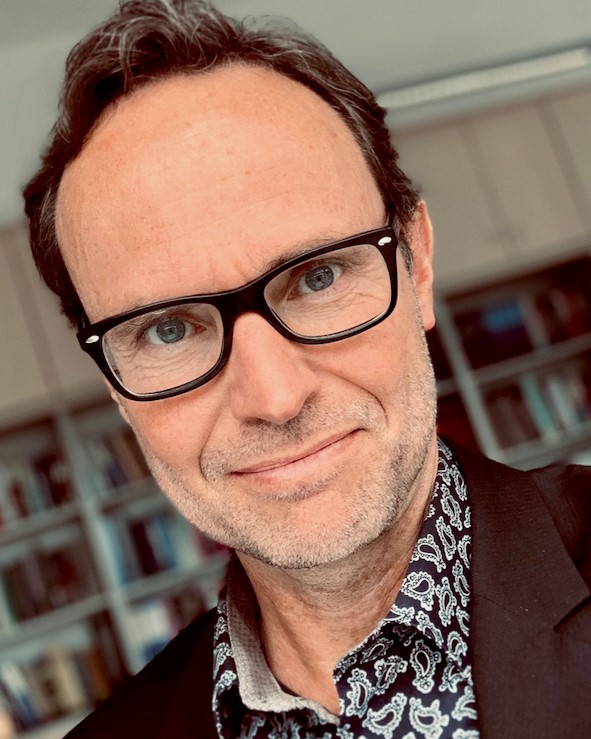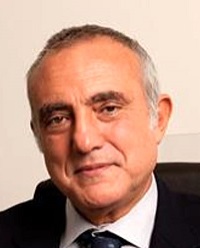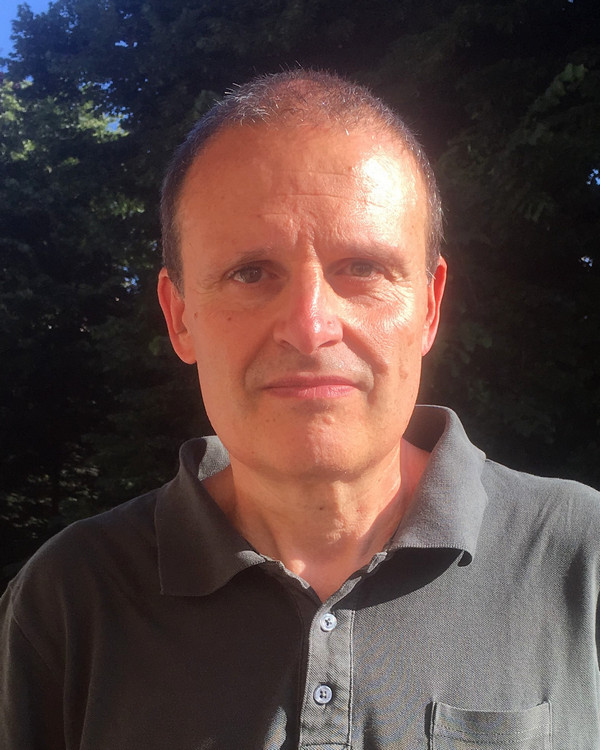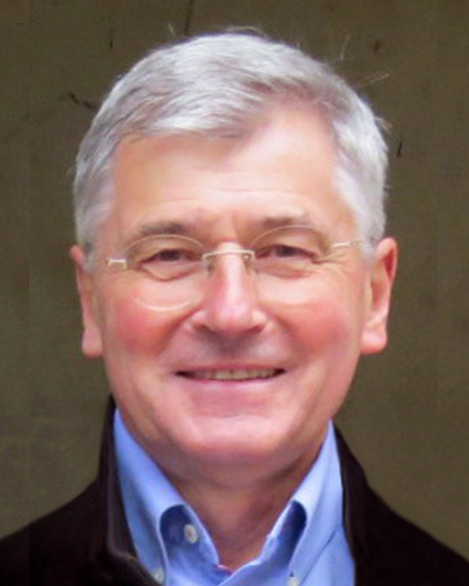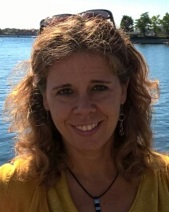|
Peter SchreinerGiessen, Germany |
Peter R. Schreiner (b. 1965) is a professor of organic chemistry and Liebig-Chair at the Institute of Organic Chemistry at the Justus Liebig University Giessen, Germany. He studied chemistry in his native city at the University of Erlangen-Nürnberg, Germany, where he received his Dr. rer. nat. (1994) in Organic Chemistry. Simultaneously, he obtained a PhD (1995) in Computational Chemistry from the University of Georgia, USA. He completed his habilitation (assistant professorship) at the University of Göttingen (1999), before becoming associate professor at the University of Georgia (Athens, USA), and head of the institute in Giessen in 2002. P. R. Schreiner is an elected member of the Leopoldina–German National Academy of Sciences, the North Rhine-Westphalian Academy of Sciences, Humanities, and the Arts, the Academy of Science and Literature (Mainz), the Berlin-Brandenburg Academy of Sciences, and is a Fellow of the Royal Society of Chemistry. He received the Dirac Medal (2003, WATOC), the Adolf-von-Baeyer Memorial Award of the German Chemical Society in 2017, the RSC Award in Physical Organic Chemistry of the RSC in 2019, the Academy Award of the Berlin-Brandenburg Academy of Science in 2020, and the ACS Arthur C. Cope Scholar Award 2021. He has been a visiting professor at the CNRS in Bordeaux, the Technion in Haifa, the Australian National University in Canberra, and the University of Florida in Gainesville. His research interests include organic reaction dynamics and reactive intermediates, quantum mechanical tunneling, and London dispersion interactions as probed in the realm of small molecule activation, nanodiamonds, and organocatalysis. |
| | |
| | |
|
Vincenzo BaronePisa, Italy |
Vincenzo Barone was born in 1952. After graduating in 1976, he continued his education at the Universities of Marseille, Grenoble, Paris, Erlangen-Nurnberg, Montreal and Berkeley. He became an Associate Professor in 1982 and a Full Professor in Physical Chemistry in 1994 at the Federico II University of Naples. Since 2008 he has served as Full Professor in Theoretical and Computational Chemistry at the Scuola Normale Superiore, Pisa. He is Dean of Classe di Scienze Matematiche e Naturali Director of the DreamsLab at the Scuola Normale Superiore, and fellow of the Accademia dei Lincei, Royal Society of Chemistry, International Academy of Quantum Molecular Sciences and European Academy of Sciences. He was President of the Italian Chemical Society (SCI) between 2011 and 2013, chair of CM1002- CODECS COST Action (2010-2014), and recipient of the Luigi Sacconi, Cesare Pisani, and Gian Battista Bonino medals. In 2013 he got an Ideas ERC Advanced Grant (DREAMS). Barone has authored more than 700 papers in ISI journals and several book chapters with more than 43000 citations and an h-factor of 76; 8 papers were cited more than 1000 times. The most significant scientific contributions include fundamental developments in Density Functional Theory, solvation theory, and computational spectroscopy, together with state-of-the-art applications in materials chemistry, life sciences, nanosciences, and cultural heritage. The scientific activity has been accompanied by intense and continuous efforts in promoting the role of chemistry in Italy, both to other disciplinary communities and concerning the more general public perception. As a more recent example of openness to different communities, mention the realization, at the Scuola Normale Superiore, of the DreamsLab Centre, the virtual reality laboratory headed by Prof. Barone, which includes a virtual "microscope" and “telescope", based on 3D Cave Automatic Virtual Environment technology, capable of enabling interactive manipulation of virtual "objects" ranging from the cosmological to the molecular scales. Barone has been the coordinator of the Chemistry Ph.D. program at the Scuola Normale Superiore since 2009 and has supervised more than 35 Ph.D. students and over 25 post-doc researchers; many of them, including -notably- several female scientists, have brilliantly proceeded in their scientific career. |
| | |
| | |
|
Antonio PifferiMilan, Italy |
Antonio Pifferi was born in 1965. After graduating in Nuclear Engineering from Politecnico di Milano in 1991, he received a PhD in Physics from Politecnico di Torino in 1995. Researcher in 1996, Associate Professor in 2003, and Full Professor in Physics at Politecnico di Milano in 2016. Since 2020 he has been the Director of the “Center for Ultrafast Science and Biomedical Optics” (CUSBO), belonging to the European Network of Laser Infrastructures “LaserLab Europe”. He was a research intern at the Pharmacological Institute “Mario Negri” of Milan, and a visiting scientist at the Lund Laser Centre, Sweden holding a Marie Curie grant. Recipient of the Kramer prize awarded by “Istituto Lombardo”, founded by Napoleon in 1797. Member of the IEC Committee SC 62D “Medical devices” as a national expert on tissue oximeter standardization. Member of the Scientific Advisory Board of the European Institute for Biomedical Imaging Research, Wien, Austria, and reviewer for different National and International grants and prizes. He is co-founder of the start-up PIONIRS S.r.l., developing time-domain tissue oximeters. Author of more than 200 papers in peer-reviewed journals, with an H-index=55. His research activity is focused on the study of photon propagation through highly diffusive media in the visible and near-infrared range (diffuse optics) using time-resolved techniques (picosecond temporal resolution with sensitivity down to the single-photon level). Diffuse Optics has been explored vertically, i.e. from basic research up to exploitation of new applicative directions, and horizontally, covering diverse approaches and applications, ranging from optical mammography to functional brain imaging, from food analysis to monitoring of wood products.
|
| | |
| | |
|
Hans-Ulrich ReissigBerlin, Germany |
Hans-Ulrich Reissig was born in 1949. He studied chemistry at the Ludwig-Maximilians-Universität München from 1970-1975 and after doing research under the guidance of Prof. Rolf Huisgen received his doctoral degree in 1978. After a postdoctoral stint with Prof. Edward Piers at the University of British Columbia, Vancouver, he started his independent career at the University in Würzburg under the mentorship of Prof. Siegfried Hünig. He took academic positions at the universities in Darmstadt and Dresden, and from 1999-2015 at the Freie Universität Berlin. His research interests are in the field of organic synthesis, in particular in the development of new synthetic methods and their application to the synthesis of natural products and heterocycles. His contributions to samarium diiodide-promoted cyclization reactions were highlighted by one of the shortest and most efficient approaches to the legendary alkaloid strychnine. So far he published more than 500 peer-reviewed articles and gave almost 300 invited lectures. For many years, he also served as a member of the editorial board of “Liebigs Annalen der Chemie” and of “European Journal of Organic Chemistry” and of various committees of the Deutsche Forschungsgemeinschaft and the Alexander von Humboldt Foundation. Since 2012 he has been a corresponding member of the Bavarian Academy of Sciences and Humanities and in 2014 he was honored with the Liebig Memorial Medal of the Gesellschaft Deutscher Chemiker. In 2017 he received the Honorary Membership of the Polish Chemical Society. |
|
Laura RodriguezBarcelona, Spain
|
Laura Rodríguez (born in 1975) is a Full Professor at the Inorganic and Organic Chemistry Department (University of Barcelona). After receiving her PhD degree at the same University on the topic of metallic clusters and supramolecular chemistry she moved for three years at the NOVA School of Science and Technology in Lisbon to work on photophysics of metal and organic compounds. Then, she came back to Barcelona where she founded her research group on Supra- and Nanostructured Systems, mainly based on the applications coming from the luminescent properties of several compounds and their resulting supramolecular assemblies. She is currently the chair of the recently successful COST Action: Luminescent Chemosensors for Environmental Security (LUCES) and she is involved in some ongoing networks: an international network with France (Hetero-elements and coordination chemistry: from concept to applications-HC3A”), and the national networks “Supramolecular Functional Materials” and “Organometallic Chemistry for Sustainable Solutions”. During 2018-2020 she was PI of an agreement with the Samsung Electronics Company, with a focus on developing room temperature phosphorescent emitters for OLED applications, being a great opportunity to contact with the transfer of knowledge and building a bridge between fundamental and applied research. Around 110 publications are included in the SCI and ca. 45 of them have been published in the last 5 years (2019-2024). She has also been committed to several management activities: secretary of the Inorganic Chemistry Department from 2011-2016 and vice-dean in charge of Professors’ contracts and Security from 2017-2020. She has collaborations with several groups at national and international level, all of them with common interests in supramolecular chemistry, organometallic chemistry, and/or photophysics. Her main research interests are based on the development of new organic and metal compounds with luminescent properties with relevant applications on luminescent materials, chemosensors, and singlet oxygen production and the careful analysis of weak supramolecular assemblies.
|
